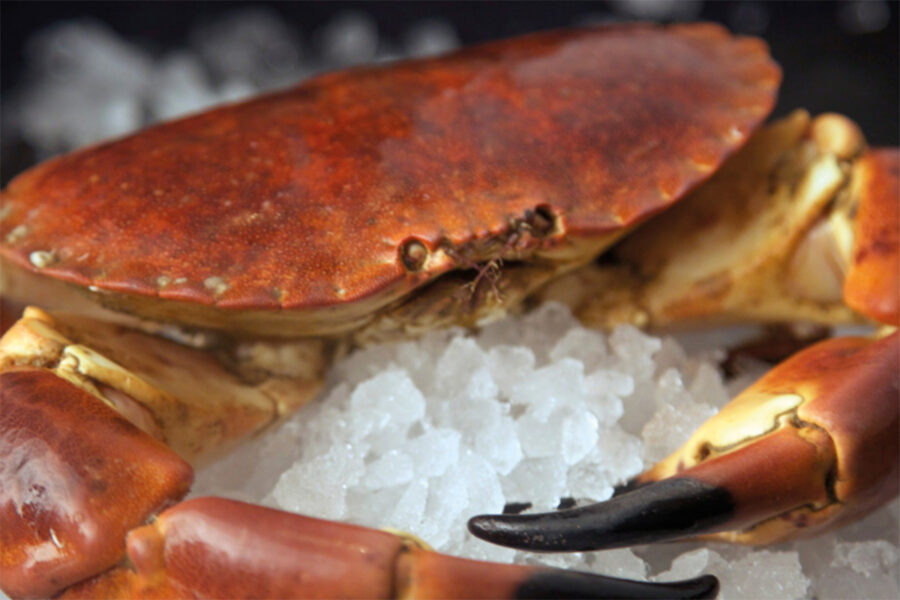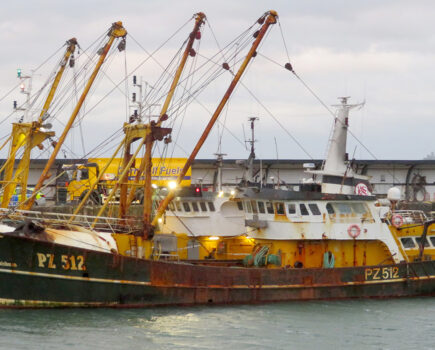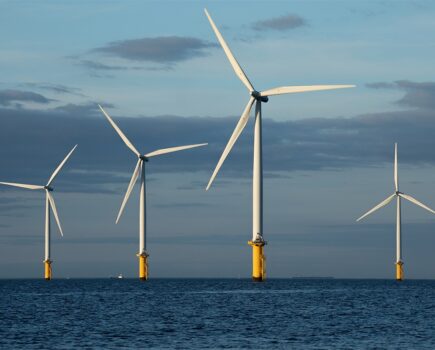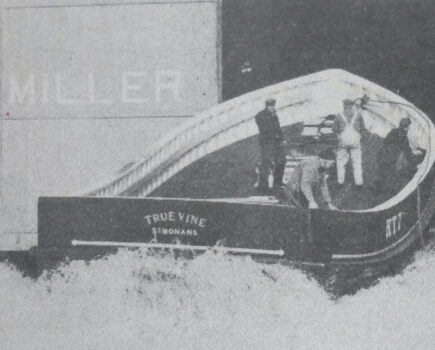Seafish, the Shellfish Association of Great Britain and the Crab Management Group have published their Codes of Practice for the Welfare of Crabs, Lobsters, Crawfish and Nephrops.
This followed two years of preparation, including a comprehensive review of legislation and codes of conduct on handling crustaceans elsewhere around the world. The code was developed in response to the Animal Welfare (Sentience) Act 2022, which recognised that crustaceans are ‘sentient beings’ and can feel pain, so should therefore be handled at all times with appropriate care.
Codes have been developed for the whole supply chain, from when an animal lands on deck through to the retail and food sectors. Each sector has its own chapter, and the code covers everything a sector may wish to know to ensure welfare risks are identified and how to mitigate them.
Experts from each sector (catching, wholesale and transport, processing, retail and foodservice) were brought together to identify welfare risks and mitigation measures for those risks. Members of the steering group also attended the first Catch Welfare Event in Bergen last year, a platform looking at welfare in all aspects of fisheries, allowing the team to discuss the issues and challenges widely with an international group of experts. The project was brought together by Cumulus Consultants Ltd, who have vast experience in animal welfare and included animal welfare scientists as part of their team.
Mike Roach, deputy chief executive of the NFFO and a member of the steering group, said: “It must be recognised that the welfare of crustaceans has always been at the forefront of this industry, as the quality of the product is directly linked to their welfare.
“What the codes do is identify where the welfare risks are and help identify measures that can be taken to minimise these risks if they are not already being accounted for. In most cases, it is likely to be a tweak to an operation here or there that can help minimise these risks.
“This project is a great example of industry proactively responding to a change in legislation and generating usable codes of practice that have been developed for real-world application, with suggestions that can be easily adopted by industry where necessary.”
The NGO Crustacean Compassion, a single-issue NGO created in the same year that the animal welfare legislation was introduced, came out immediately criticising the new code, claiming that it ‘let industry off the hook’. The NGO has received large swathes of funding – its most recent filing with Companies House showed £875,510 cash in hand – which supported its participation in the two-year process to develop the code, including sitting on the welfare panel.
However, despite its considerable input, the NGO put out a wide-ranging press release saying that the code ‘does not represent an advance in welfare or support the seafood industry to address urgent welfare and environmental issues’, and urging buyers, the public and government to adopt its own alternative code.
Mike Roach added: “Unfortunately, without wholesale capitulation to Crustacean Compassion’s every wish being included in the codes, it is unlikely to support an industry-led initiative, as it goes against the way a single- issue lobby company operates.
“What industry has done here, and should be proud of, is respond to the change in legislation in a proactive and responsible manner, advised by independent welfare experts, and develop codes that can work in the real world.”
Claire Pescod, head of sustainability and science at Macduff Shellfish and chair of the Crab Management Group, added: “At Macduff Shellfish we believe the humane treatment of decapod crustacea is vital for our business. Our staff are trained in the humane handling and dispatch of crabs and lobsters and the importance of welfare considerations. That’s why at Macduff Shellfish we are committed to electrically stunning 100% of our brown crab prior to cooking or processing, and why we have been actively involved in the development of these industry codes of practice.
“The codes are a positive step forward for the seafood industry. They are being promoted across the relevant sectors in the UK seafood supply chain, and their uptake reviewed. The codes will evolve as new technologies and insights into animal welfare develop.
“There are aspects of decapod welfare where the technology is just not yet available. Many in the supply chain, from catching to processors and retail, including Macduff Shellfish, are working on innovative projects to deliver technological solutions that will not only improve decapod crustacean welfare but also the working conditions for fishermen.
“Macduff Shellfish encourages the uptake of the codes by all relevant parties in the supply chain.”
Seafish director of operations Aoife Martin told FN: “Seafish is pleased to have worked with businesses across the seafood sector to develop the Codes of Practice for Crustacean Welfare.
“We are disappointed that after actively involving Crustacean Compassion in the development of these codes, it has chosen to engage in media campaigns and to publicly criticise this work, rather than continue to work with us on the roll-out of the codes. We believe that the codes have benefited from the input of Crustacean Compassion, and there are many examples that we can point to where the codes reflect its feedback.
“The Shellfish Association of Great Britain, the Crab Management Group and Seafish remain focused on helping businesses across the seafood sector to make the practical changes to ensure that the welfare needs of crustacea are being met.”
This story was taken from the latest issue of Fishing News. For more up-to-date and in-depth reports on the UK and Irish commercial fishing sector, subscribe to Fishing News here or buy the latest single issue for just £3.30 here.
Sign up to Fishing News’ FREE e-newsletter here.








